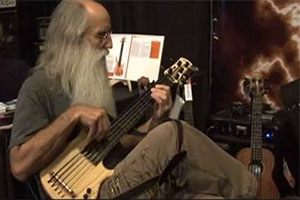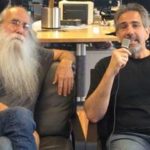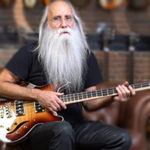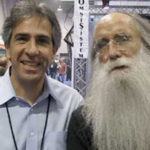Playing bass isn’t about having chops; it’s about knowing how to use them
By Jon Liebman
June 10, 2022
A lot of people think being a great bass player requires massive chops, in order to display fiery, dazzling displays of bass greatness.
Having chops is important. But what’s even more important is knowing when and how to use them.
What are “chops,” anyway?
In my view, the word “chops” can be defined in more than one way. The most common definition generally refers to the ability to play a lot of notes really fast.
Another way of defining chops, I say, is being dependable, having the skills to lay down a solid, feel-good bass line, consistently, and knowing how to give the music just what it needs. This second definition could also include having the discipline of knowing when to hold back if necessary, even if the bassist can play “a lot of notes really fast.”
When you’re learning bass, do you get excited, imagining yourself blazing through some burning, chops-infused fusion solo, like Stanley Clarke or Jaco Pastorius? Or maybe an explosive, jaw-dropping slapping groove, like Louis Johnson or Victor Wooten?
There’s nothing wrong with having fantasies like those. If that’s what you’re going for, power to you.
But do you think you have to have those kinds of crazy chops to be a good bass player? If so, well, think again.
You need bass chops, but not in the way most people think
I’m not saying you don’t need solid technique and strong proficiency on the bass. I’m saying that even if you don’t have Victor Wooten/Billy Sheehan/Stu Hamm/Jaco-type chops, you can still be a damn good bass player.
A lot of people have the wrong idea about what it means to have chops. If you can play “a lot of notes really fast,” well, good for you. But that’s not what being a bass player is about. And that’s not what’s needed or expected from you. Your job as a bass player is to lock in with the drummer, set the foundation for the band, and make the music feel good. Anyone who can do that really well is a great bass player. The soloing and the flashy stuff is cool, but it’s an added feature and, dare I say, it’s really not necessary.
What about Leland Sklar?
Do you think Leland Sklar has chops? Well, I can tell you, first-hand, that he does. I’ve seen him many times in non-performing situations, just fooling around or warming up, and yes, Leland’s got plenty of chops. Can he play a lot of notes really fast? You bet he can! But that’s not what he’s known for. He’s known for playing the bass, giving the music what it needs. The reason he’s played on so many thousands of records is because of the mantra he’s always citing: “Serve the song.” The fact that he’s never taken a solo on a record is actually a badge of honor for Leland. He’s proud of that. Rarely will he pull out the fancy stuff, and when he does, it’s only because, well, it serves the song.
How a lack of chops can make you more creative
I got to thinking about all this during my recent conversation with bassist and multi-instrumentalist Nelson Montana, published as this week’s FBPO interview. Having done a lot of sideman work over the years, Nelson is now known mainly as a solo artist and a YouTuber. He spends a lot of time in his home studio, laying down not only bass tracks, but drums, guitar, strings, etc. Having put himself into that environment has done a lot for his overall musicianship. “It allowed me to have my own focus and my own vision,” he says.
Nelson happens to play a lot of instruments, somewhere around eleven, at last count. But is he a virtuoso on all of them? No! Ironically, he says, the lack of ability (i.e., lack of chops) he has on some instruments has actually enabled him to make better music.
“On some instruments, I’m limited,” he says. “I know that. But in a way, the limitation is interesting because it forces you to be more artistic.”
I found that statement intriguing. When you think about it, it makes total sense.
“Instead of relying on your licks,” Nelson says, “which we know a lot of guys tend to do, or your chops, whatever it might be, it’s like, ‘I’ve gotta make music.’”
The more I listened to him, the more I realized what a profound concept he was describing, and how it’s so often overlooked.
“To write string lines,” he says, “you need two fingers. You don’t need to be Oscar Peterson to make music. So just make music. That’s the thing.”
In the end, it’s about the music. Always.
When you have a narrow scope to start with, it forces you do as much as you can with what you have. If you don’t have a lot of chops – in the way most people describe them – you can still be really good at making music. I’d even go so far as to say you can be more creative when you don’t apply (traditionally-defined) chops to your playing.
In other words, you don’t have to be a virtuoso to be a great musician. Nelson hit it right on the head.
“As a bass player,” he says, and “with other instruments, it was, ‘I can only do so much, so I’ll just make some music and take that approach.’”
So the next time you’re fantasizing about being a great bass player, remember why you’re developing those killer bass chops, and how you intend to use them.
Have a thought on the subject? Leave a comment below about how chops should be applied to bass playing. In the meantime, watch my interview with Nelson here.






To me “chops” is about control. If you have great control you have better accuracy and have more tools at your disposal, and more options. Danny Morris once told me in a bass lesson at Berklee that for many bass players who dont execute good time, it isnt about their inate sense of time, rather it’s about control. Excecutinga bass line in good time does require that you have the control necessary to place the notes where they ought to go. You may hear them in the perfect place, but not be able to PUT them in that place. To me that is chops.
Interesting perspective, David, thanks. Good old Danny Mo! 🙂
I couldn’t agree more with Nelson and Leland. I have been the bassist of Vanilla Fudge since the late and amazing Tim Bogert retired in 2009. I subbed for him on and off before that. I also replaced him in Cactus for five years. If you’re using speed as a definition of chops, yeah, I have Tim’s speed chops… in my wildest dreams. Yet, when I meet Fudge and Cactus fans, I am always thrilled to hear that yes, of course they miss Tim, so do I, he is my biggest influence and was my friend, but they say I fit the band well.
I believe that’s because what I lack in Tim’s blazing speed, I make up by thinking WWTD? How would Tim make music here? Which notes would he play, not necessarily how many. So if it’s sixteenth notes instead of sixty-fourths, not many people notice. Okay, Tim’s bassist fans may, I freely admit that, but Tim did teach me his raking technique which helps me a lot.
If I might add, it’s said a lot that bassists hold it down. I kinda look at it differently. Since I’m on the “bottom”, I’m the foundation. I look up. I try to “lift it up”, how can I enhance, lift up, not step on, what will make the band sound better? Sure, sometimes it’s playing a straight groove. Other times it’s making a drum fill musical, or finding a different carefully chosen note that harmonizes with a lead instrument or even a voice. In the end it may be the same thing, but looking at it from that perspective boosts my own creativity, and looking up from below never lets me forget what job one is.
Right on, Pete! Thanks!!
While is good to have chops, I don’t know very many bassists who have a successful career based on their chops. Lee keeps getting hired to play bass because he doesn’t show off his chops. There are many amazing bassists, living and dead, who have amazing chops and have been featured on songs because of their ability to solo but they keep getting hired because they serve the song. Marcus Miller, Anthony Jackson, Louis Johnson, Abe Laboriel, Jeff Berlin, and Stanley Clarke are examples of bassists who have incredible chops but have long discographies as sidemen. Check out the discographies of Chuck Rainey, Ron Carter, and Nathan East. Chops have very little if anything to do with their length!!!
You got that right, Keith. Serve the song! Thanks for the comment.
Well, having chops is great! Is having “self control” when it comes to chops is KEY!
Guys like Lee Sklarr is great for that. Nathan East, my all time favorite player is great for it!
I’m not a ‘chops’ guy but loves to watch other bass players “get off” as so to speak. I enjoy being a ‘supportive’ player and learning to be better @ it! Lee couldn’t say it any better; SERVE THE SONG!! When I started playing that what it was all about; the music. Nothing against Marcus, Victor, Stanley, or Jaco. They took the instrument to new heights and we still have new cats coming on the scene doing some amazing things on bass.
But we’ve gotten so consumed with ‘techniques’ we somewhat forgotten our ‘roles’ as bassists.
So for me what’s important? Have a bunch of what my man John Pattituci called “namm” show chops or knowing how to lock in with a drummer and ‘serve’ the music with a band?
I rather learn how to be a better supporter of the music than focusing on chops. I figure the more you play and practice, the chops will come anyway.
John do have any advise on this? Anything will help.
I think you said it very well, Petey. Thanks for weighing in!